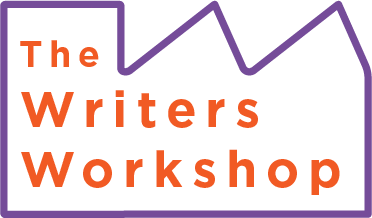A Slam Dunk: How to Successfully Pitch Your Novel (Part 1)
The eleventh Novel Slam took place on Friday. October 13th, as part of Sheffield’s annual literature festival, Off the Shelf. Novel Slam is a contest that invites writers to pitch their book ideas to members of the public who vote for their eight favourite pitches. The elected writers then get to read a 3-min excerpt, which is judged by an expert panel of published authors. In this miniseries of blog posts, we asked each of the three winners for their perspectives and tips for any would-be Novel Slammers in 2024. First is runner up Harley Jones-Ryley.
1. Can you summarise the novel you pitched and tell us what stage it's at?
I pitched This Burning House Was Never Yours, a sci-fi novel from the perspective of Nanny 467, a humanoid childminder purchased by the Wentworth family to deliver the best care to their son, Alfie. It explores what it is to be a parent and what ‘good parenting’ looks like, and critiques the increasing commodification of fundamental human behaviours. It started as a 1000-word short story, but it felt too big a story, so I expanded it to 4000 words … and it’s now about 6000 words so far, so I’ve got a fair way to go before it’s a novel!
2. Why did you decide to enter Novel Slam 2023?
I had a brilliant experience entering in 2020 as part of the virtual Novel Slam and was keen to do it again. I didn’t plan to pitch this year (not having, you know, written a novel), but I wanted to challenge myself to stop being a perfectionist and share my work, even if it’s not quite ready. I’m so glad I did.
3. How did you find the experience of writing a 1-minute pitch? What were the challenges?
I found it really hard the first time I did Novel Slam because I had so much story I wanted to cram into that 60 seconds (having written the majority of my first novel by that point). The challenge was different this time. How do I pitch a novel when I don’t quite know where the story will end up? I focused on the themes I wanted to get across, the key characters and some snippets of their position in the world of the novel, and the overarching sense of doom that I know will make it into the first draft. It was a good way of focusing my mind and asking myself what I really wanted to tell through this story.
4. How did you feel reading to such a large group of people? Any tips for presenting?
It was definitely more nerve-racking than sitting behind my laptop screen, that’s for sure! Whenever I have to present something, I always practice reading through a few times to get a feel for the pace of the piece and any words or phrases that are trickier to say aloud. I do that with most of my writing, actually, even if I’m not presenting it. I find it’s a good way to spot unwieldy sentences! I think one of the judges gave a helpful piece of advice at the start of this year’s event: don’t rush!
5. What feedback did you receive on the night from either the judges or audience members that surprised you or you found useful?
I was really pleased that the judges liked the unique perspective of the humanoid nanny character and the initial voice I’d chosen, which is quite short and ‘robotic’ (although Nanny 467 isn’t a robot, the opening is very clear on that!). Bryony Doran’s feedback was that it was quite difficult to listen to that style of voice, and the feedback from both judges was that they would want the voice evolve as the novel goes on, was really helpful. As I’ve got a way to go with writing it, I’ll be keeping that in mind as I explore Nanny 467’s story over the next few months.
6. What advice would you give to anyone thinking of entering next year?
Do it! But, slightly more helpfully, think about how the pitch and the first three minutes hook the reader and keep their attention. Choose an extract that quickly establishes the themes of the novel and focuses on a couple of characters, because this seems to land well with listeners. Also, and this is feedback for me, think about how your extract and pitch land when spoken aloud. It is a Slam competition, so making what you are presenting easy and engaging to listen to is really important. Also remember that your audience is a lovely community of people who are really rooting for you, which makes a huge difference. Good luck!
Next time, winner Jane Croft.
